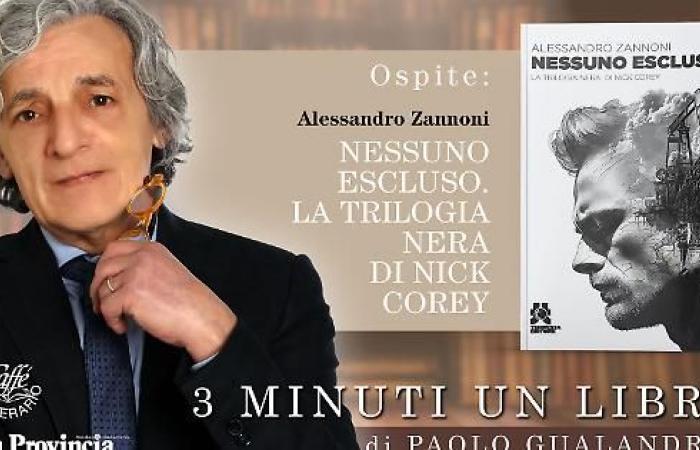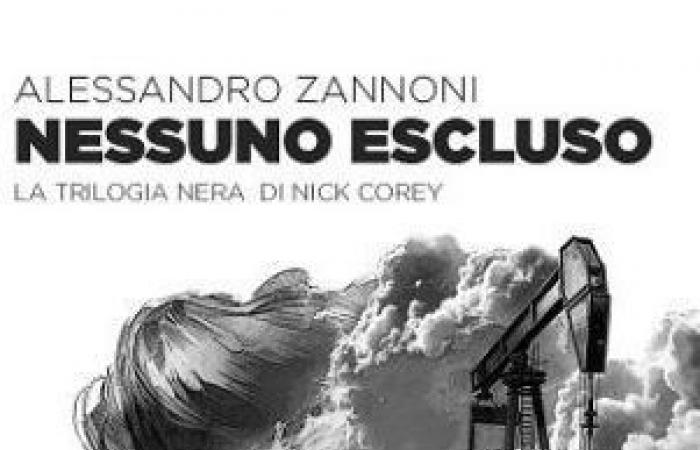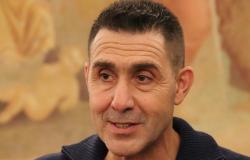CREMONA – «You played with the elements of noir, you slapped them and you built a story that would not have displeased Jim Thompson, Richard Brautigan and the Cohen brothers, just to mention the closest relatives I found in your ‘Le cose di cui sono capace’. In a period in which noir authors seem embarrassed to write about it (and if you then tell them that in reality they only write detective stories, they get even more pissed off), you turn the question on its head and serve up a genre novel that is not only ashamed of being such, but proudly proclaims its belonging to it».
MISUNDERSTOOD SENSE OF JUSTICE
Words by Luigi Bernardi, writer, essayist and screenwriter who passed away in 2013 and who introduced Italian readers to the pleasure of noir: in the 1990s he began to explore its universe by proposing authors destined for success in Italy and abroad (among others, Cesare Battisti, Giuseppe Ferrandino, Marcello Fois, Stefano Massaron, Carlo Lucarelli, Alda Teodorani, Nicoletta Vallorani) and he also had novels by Didier Daeninckx, Paco Ignacio Taibo II, Léo Malet, Jean-Patrick Manchette translated. These words of his are directed to Alessandro Zannonia former antiques dealer and now a full-time writer (in addition to his novels, he has also made his way with screenplays and dialogues for the cinema). ‘The Things I’m Capable of’ is the first novel in Nick Corey’s dark trilogy ‘No One Left Behind’.
From the name of the protagonist, a violent sheriff and great blasphemer capable of bending the sense of justice according to his own interests, moods and feelings of the moment, one can guess that this is a remake of Thompson’s noir masterpiece: «In 2010 Bernardi had proposed that I rewrite an important book of literature brought to the present day. I chose Thompson and his ‘Sponge Shot’, written in the early 1960s, in which Nick Corey is the very well-known protagonist. I rewrote not only the character, but also the place, South Texas, but I gave it a modern key, all my own, which I then remodeled and reworked in the other two novels». The last chapter of the trilogy, the one that gives the title, is freshly written, the second is ‘Nel dolore’. Zannoni talks about it with Paul Gualandris in the video interview ‘Three minutes a book’.
WHAT A LOWNESS IN THE PROVINCE
‘Nessuno escluso’ is a very hard text, made of noir atmospheres, violence and sex. A book for strong souls. Bernardi himself had defined it as «too dark and too far from the publishing market». Zannoni confirms: «I struggled to find publishers who would accept such a complex, more than violent, theme.. I like to put on paper the imperfections of man and unfortunately the evil that dwells within us. I’m not one who likes simple stories”. Nick Corey’s stories take place in the deep belly of the United States United States of America where there are notoriously no gray tones, but only black and white. As Corey, son of an Italian, Coretti, says, “because it’s in the ass of the world that the worst things happen and there bad things happen“. “In addition to the imperfections of the human being, the province fascinates me. It is there that you find the most glaring baseness. Just look at the last few years of news, even Italian, in which men really manage to give the best of themselves. Yes, let’s call it that, for us writers who love this type of story, there we really find the best of the worst.” We are in America where violence is in fact the law.
SO ABSURD, SO TRUE
«I want to emphasize that it is never gratuitous, but always taken to extremes almost to mock it. Initially the first novel was born precisely as a mockery of American writers, and of what they write in noir, because in America everything is allowed and in their stories anything happens. We read and say: it’s so absurd that it must be a true story precisely because it comes from there.». It is hard boiled, with its paroxysmal realistic representation of crime, violence and sex. Zero do-goodism in this book: «Dry dialogues as I like them. I love to bring the reality of the facts to the page, we have become arid, characters from horror films. Man has become an animal and I am fascinated by this drift». Nick is the animal par excellence, a character that you either love or hate, like the whole book by the way.
«I haven’t found a single person who hasn’t fallen in love with him. He is human, he has impulses that go beyond the scale of shared values, but then every now and then he returns to the beautiful things, like love for a woman, for a friend, for his mother.. But when his vein closes… He wants happiness and to obtain it he really does everything. Unfortunately”. Here lies the contradiction, between the violence of some of his actions and his desire for love, which paradoxically is passionate in its gestures but Peinet-like in its motivations: “I think this is a problem for everyone. Seeking happiness and love that calms you, satisfies you, makes you believe you are living a serene and happy life. Until chance gets in the way”. And Nick is undoubtedly the protagonist of a wrong destiny, which he supports with great conviction: “The thing about him that I like is that he goes straight down his own path, he doesn’t think about the consequences, he is the master of his actions that he takes to the extreme consequences”.
The book is extreme, it immediately generates a skimming of readers, «I have some friends who gave up after a few pages: I can’t do it, I already have my life that is throwing me into crisis and I’m scared of reading certain things. And this makes me wonder: don’t people notice what’s happening around them and take refuge in books to live a fictitious life of serenity and joy? A question I’ve been asking myself a lot lately”. The answer that Zannoni gives himself is peremptory: “I say that they are not well and that reading is bad, to quote the title of my FestivalNoir in Lerici. And consequently: don’t read if you have to go and invent false happy lives. If you really want to measure yourself with a book, choose something that punches you in the head and stomach, but that makes you ask the right questions at the right time”.
THE SHOCK THAT GIVES COURAGE
‘Nessuno escluso’ gives you that jolt, it takes courage to continue reading. «It’s all about courage, even if it leaves a little bit of hope. Living without it is impossible, you’d have to put the barrel of a gun in your mouth.». Zannoni nourishes «the desire to take a flamethrower every now and then and fix things around once and for all. A desire for violence to smooth out the evils of the world with more evil». His personal flamethrower is writing: «It saved me. I throw my obsessions, my pains, my persecutions on paper. And I settled down. So much so that today I am a calm man».







